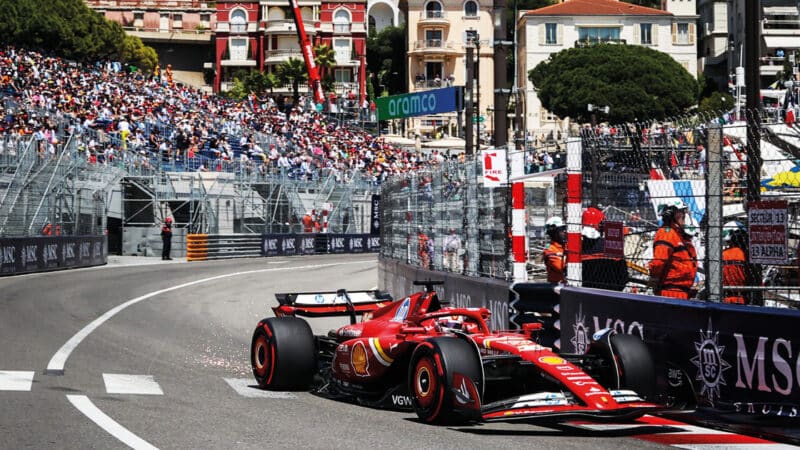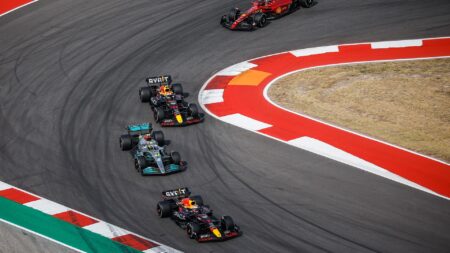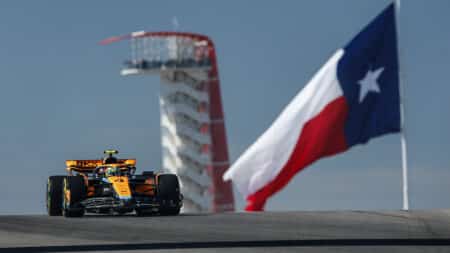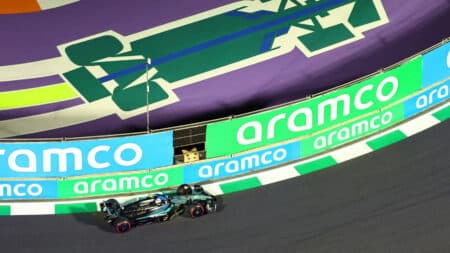“So it’s not showing who is the fastest guy in the race. It’s a point that goes to the guy that by chance or by luck or by race situation has a free pitstop at some point in the race. It’s not always the case, but in a lot of occasions, most of the time [it is].
Haas‘ Kevin Magnussen and Alpine‘s Esteban Ocon also added that the fastest lap bonus was rarely on the mind of midfield teams, as the similarity in performance between them often limits the ability to fit in a late pitstop and go for the extra point.
So as a point of controversy for the front-runners and a point of irrelevance for everyone else, it seems that the entire F1 grid is fully behind the FIA’s decision to axe the quick lap bonus. But could the world championship benefit from awarding a point for pole position instead?
“Pole position is something that, at least in Formula 1, is given a lot of value,” said Sainz when asked about the prospect. “As drivers we like being the fastest because it shows you’ve maybe done the cleanest lap. You’ve taken maybe more risks. You’ve put everything on the line to go on pole. And a point for that in a tight field makes sense.
“In a field where only one car is going to get all the pole positions makes less sense. But in the ideal scenario of a tight field and one guy going for it in qualifying and getting that pole position, I think it could make more sense than the fastest lap of the race.”

Could a point for pole position add an extra twist to qualifying?
Ferrari
After two years of Red Bull dominance (in which Max Verstappen started from pole in 43% of races) McLaren, Ferrari and Mercedes have all managed to close the performance gap to the reigning world champions as the 2024 season has progressed — which has turned qualifying back into a gripping spectacle, even without a bonus point on offer.
An average of 0.335sec has separated the top three qualifiers in the last ten rounds, and four drivers (Verstappen, Norris, Charles Leclerc and George Russell) from four different constructors’ (Red Bull, McLaren, Ferrari and Mercedes) have all claimed pole position starts.
If the FIA had chosen to award points for pole instead of the fastest lap at the beginning of 2024, it would have had little effect on the current drivers’ standings. In fact, Verstappen’s lead in the championship would have grown from 52 points to 57 heading into COTA — courtesy of pole positions in eight out of the first 11 races of the season.
But, in the hypothetical event that points for pole position were awarded in 2025, and the field remains as close as it is currently, the additional 24 points available across the year could be enough to alter the course of the championship.
You only have to look back at the heated title clashes of the past to see how a single point for pole at each race weekend could have an impact on end results.
How a point for pole could have altered F1 title battles
2021
| Points | Pole positions | Points (with pole bonus) | |
| Verstappen | 395.5 | 10 | 400.5 |
| Hamilton | 387.5 | 5 | 386.5 |
Verstappen’s superior qualifying performance throughout 2021 would have seen him lead Lewis Hamilton in the drivers’ standings heading into the season finale in Abu Dhabi, had points been awarded for pole positions rather than fastest laps.
However, the gap would have been so small that the situation would have been the same: winning the race would guarantee that driver the championship. Under this scenario Hamilton would have finished the season with a lower score than he did in reality because we have removed the points accrued for setting the fastest lap.
2007
| Points | Pole positions | Points (with pole bonus) | |
| Raikkonen | 110 | 3 | 113 |
| Hamilton | 109 | 6 | 115 |
| Alonso | 109 | 2 | 111 |
If pole position points had been awarded in 2007, Lewis Hamilton would have become the first rookie (other than Nino Farina) to win the F1 drivers’ world championship — due solely to his qualifying performance. The Briton secured six pole position starts over the season which, even after a chaotic race in Brazil, would have given him a two-point advantage over Kimi Raikkonen.
Fernando Alonso would have been Hamilton’s only title threat on the final day of competition.
1994
| Points | Pole positions | Points (with pole bonus) | |
| Schumacher | 92 | 6 | 98 |
| Hill | 91 | 2 | 93 |
Michael Schumacher‘s six pole positions in 1994 would have handed him a five-point advantage in the drivers’ standings heading into Adelaide — a winning margin he would have likely protected.
In reality the pair shared a controversial clash while dicing for the lead on lap 35, but this is something Schumacher may have avoided had the points for pole been in place, as he would only need to finish second to Hill in order to secure his first drivers’ world title.
1984
| Points | Pole positions | Points (with pole bonus) | |
| Lauda | 72 | 0 | 72 |
| Prost | 71.5 | 3 | 74.5 |
Niki Lauda would lose his third and final world championship in 1984 to McLaren team-mate Alain Prost, as the Frenchman captured three pole positions across the year while Lauda saw none.
After winning from second on the grid at the Nürburgring, Prost would enter the final round of the season in Portugal trailing Lauda by 3.5 points — with a victory needed to surpass him.
In dramatic fashion, Prost would leap past pole-sitter Nelson Piquet at the start on his way to victory while Lauda would climb from 11th on the grid to finish second — losing the title by 2.5 points.
The extra point could also motivate drivers to compete for pole position even when starting from the very front row of the grid is tactically unwise. For example in Mexico City, drivers are often happy to start on the second row of the grid as they can pick up a slipstream during the long run down to Turn 1 and complete a move heading into the first corner.








